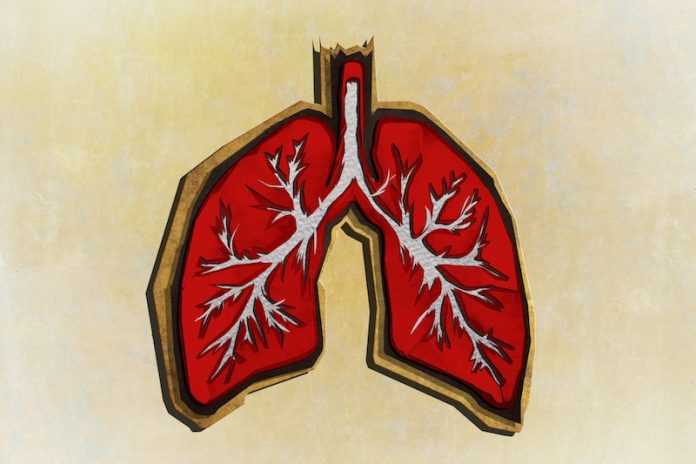
Pneumonia is an infection that inflames the air sacs in one or both lungs. These air sacs may fill with fluid or pus, causing symptoms like cough, fever, chills, and difficulty breathing.
Understanding what causes pneumonia can help people take steps to prevent it and seek timely treatment.
The most common cause of pneumonia is infection by microorganisms such as bacteria, viruses, and fungi. Each type of microorganism can lead to pneumonia in different ways. Bacterial pneumonia, for example, is often caused by a type of bacteria called Streptococcus pneumoniae.
This bacteria can be inhaled through the air or spread from person to person through close contact. Research shows that bacterial pneumonia is more common and often more severe than other types.
Viral pneumonia is another significant cause, often resulting from respiratory viruses like influenza (the flu), respiratory syncytial virus (RSV), and even the common cold virus.
These viruses can be easily spread through coughing, sneezing, or touching surfaces contaminated with the virus. Studies have found that viral pneumonia tends to be more common in children and the elderly.
While it can be less severe than bacterial pneumonia, it can still cause serious health problems, especially in people with weakened immune systems.
Fungal pneumonia is less common but can be serious, particularly in people with compromised immune systems. Certain types of fungi, such as Histoplasma, Coccidioides, and Cryptococcus, can cause pneumonia, especially in specific regions where these fungi are more prevalent.
For example, Histoplasma is commonly found in the central and eastern United States, particularly in areas with bird or bat droppings.
Research has shown that people with weakened immune systems, such as those with HIV/AIDS or those undergoing chemotherapy, are at higher risk for fungal pneumonia.
In addition to infections, there are other factors that can increase the risk of developing pneumonia. One important factor is age. Very young children and older adults are more susceptible to pneumonia because their immune systems are not as strong.
In children, the immune system is still developing, while in older adults, the immune system can become weaker with age.
Chronic illnesses can also increase the risk of pneumonia. People with chronic lung diseases like chronic obstructive pulmonary disease (COPD) or asthma are more likely to develop pneumonia because their lungs are already compromised.
Similarly, individuals with heart disease, diabetes, or conditions that weaken the immune system, such as HIV/AIDS, are at higher risk.
Research indicates that these chronic conditions can make it harder for the body to fight off infections, leading to a higher likelihood of pneumonia.
Smoking is another major risk factor for pneumonia. Smoking damages the lungs and impairs the body’s ability to defend against infections.
Studies have consistently shown that smokers are more likely to develop pneumonia than non-smokers. Quitting smoking can significantly reduce this risk and improve overall lung health.
Environmental factors can also play a role in the development of pneumonia. Exposure to pollutants, chemicals, or toxic fumes can damage the lungs and make them more susceptible to infections.
People who work in certain occupations, such as construction or agriculture, may be exposed to these harmful substances and therefore have a higher risk of pneumonia.
Poor nutrition and a lack of access to healthcare can further increase the risk of pneumonia. Malnutrition weakens the immune system, making it harder for the body to fight off infections.
People who do not have regular access to healthcare may not receive necessary vaccinations or timely treatment for respiratory infections, leading to a higher likelihood of developing pneumonia.
Preventing pneumonia involves addressing these risk factors whenever possible. Vaccinations are a key preventive measure, especially for young children, older adults, and people with chronic health conditions.
Vaccines can protect against some of the most common causes of pneumonia, such as Streptococcus pneumoniae and the influenza virus.
Good hygiene practices, such as frequent handwashing, can help prevent the spread of viruses and bacteria that cause pneumonia. Avoiding smoking and reducing exposure to environmental pollutants can also help protect lung health.
For individuals with chronic illnesses, managing their conditions effectively and following their healthcare provider’s recommendations can reduce the risk of pneumonia.
In summary, pneumonia is caused by a variety of microorganisms, including bacteria, viruses, and fungi, as well as by other factors like age, chronic illnesses, smoking, and environmental exposures.
Understanding these causes can help people take steps to prevent pneumonia and seek appropriate treatment if they develop symptoms. By taking preventive measures and maintaining good overall health, the risk of pneumonia can be significantly reduced.
If you care about lungs, please read studies about a review of COPD-friendly foods for lung health, and can Vitamin C and E help fight lung cancer.
For more health information, please see recent studies about how diet influences lung health, and these vegetables could benefit your lung health.
Copyright © 2024 Knowridge Science Report. All rights reserved.



